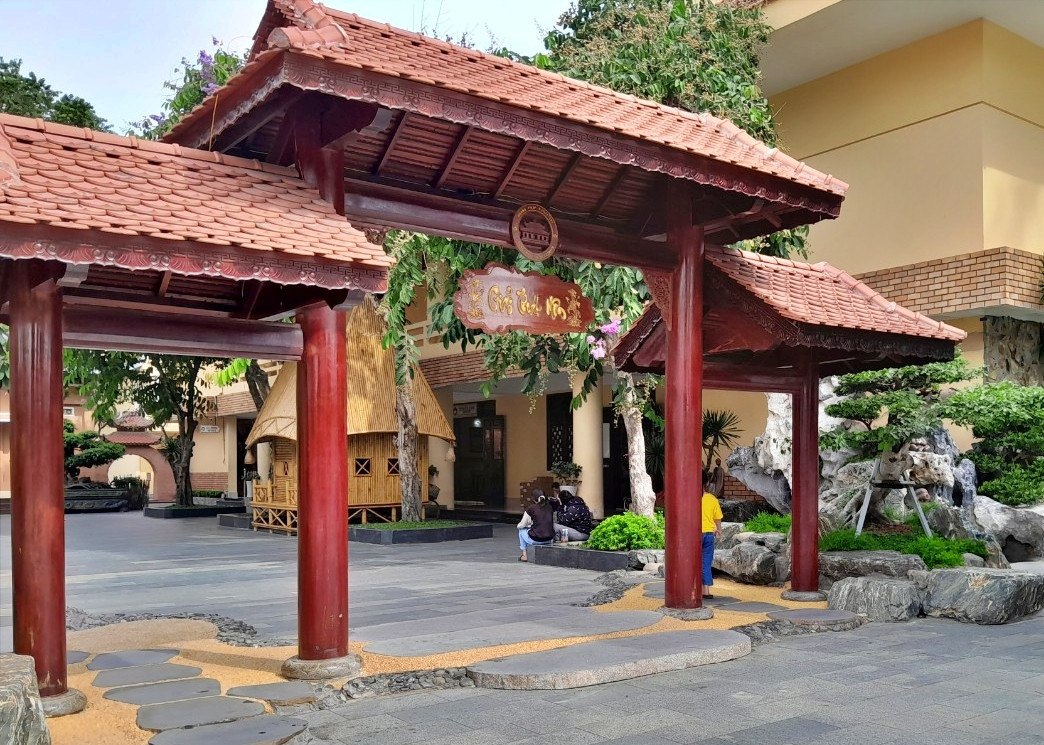
In recent years, urban parents tend to send their children to retreat courses at pagodas in summer as they believe that the children will become obedient and useful.
Many retreat courses have been launched at pagodas in the last 3-4 years, attracting a high number of attendees. Most of the retreat courses are designed for children, general school and university students.
However, it is difficult for parents to choose the most suitable courses for their children. Local newspapers warned that some ‘partners’ of pagodas, who organize such retreat courses, exploit opportunities to do business and make money, and to spread superstition.
Tran Thanh Nam, vice rector of the University of Education, a member school of the Hanoi National University, said parents’ decision to enroll retreat courses for their children comes from religious belief. They hope that the courses will help children absorb moral values preached by true monks.
“They believe that their children will receive the moral values of truth, goodness and beauty and change their perceptions, attitudes and behaviors,” Nam said.
Nowadays, parents are busy and don’t have enough time to take care of their children. As a result, children tend to spend too much time using smartphones and accessing unsuitable content on the internet.
In such conditions, parents think of summer retreat courses for their children, or military camps, which they hope can help "treat children for social network and electronic game addiction".
In other cases, parents just follow the crowd when sending their children to attend retreat courses in summer, while other parents are impressed about the advertised good effects of the courses.
In the internet era, it is easy to access videos posted on YouTube or other platforms that show monks talking about filial piety, the role of practicing moral values, and building a healthy lifestyle. This has an impact on young parents’ psychology. They want their children to be taught by the monks who are their "idols".
Meanwhile, other parents tell their children to attend retreat courses because of their failure in educating children. They hope that true monks at pagodas can help re-educate and change their children’s bad behaviors.
Nam, as a psychologist, commented that enrollment in retreat courses for children shows an increasingly wider psychological gap between parents and children.
“Parents can be side by side with their children, but they cannot accompany children in their emotions, and they cannot understand children’s thoughts and values,” Nam said.
“Some parents told me that they cannot talk to their children, and if they want children to do something, they have to tell the opposite things to get the children to do things,” Nam said.
“Therefore, parents think their children need to learn about gratitude and filial piety as a good way to change their behavior and awareness,” he explained, adding that summer retreat courses mostly focus on educating filial piety, mercy, and healthy lifestyle.
However, Nam warned that parents should not entertain an illusion that their children’s personality will change after a week or a couple of weeks of staying at pagodas and listening to prayers.
“The attendance at retreat courses may help them stay away from mobile phones and electronic games. But they may relapse into mobile phone and game addiction if parents don’t pay appropriate attention to them,” he said.
He went on to warn of the retreat courses not run by true monks. The courses may be harmful to children as they may transmit toxic ideas. If so, children would keep the mindset of dependence on mystical forces and would lack of effort to study and work in reality.
“If, after a retreat course, your children go home and show their filial piety to their parents once or twice just because they are afraid of being punished by the Buddha and genies, this is not true filial piety,” Nam said.
Becoming superstitious is a possible danger for children. Children could be haunted by the need to perform a certain religious ritual and make offerings, or otherwise think they will have bad luck.
Ngoc Lai